
Ferruccio Vitale (1875-1933) was a landscape architect. Born in Italy, he became a United States citizen in 1921. The historian Terry R. Schnadelbach considered him to be "America's forgotten landscape architect." [1]

Ferruccio Vitale (1875-1933) was a landscape architect. Born in Italy, he became a United States citizen in 1921. The historian Terry R. Schnadelbach considered him to be "America's forgotten landscape architect." [1]
Vitale was born in Florence, Italy on February 5, 1875, the son of Lazzaro Vitale and his wife, the Countess Giuseppina Barbaro Vitale. [2] The father was an engineer, [3] and in 1893, the son graduated from the Royal military school in Modena with a degree in engineering. After graduating, he enlisted as an officer in the Italian army. [3] Vitale moved to Washington, DC, in 1898 in his role of military attache to the Italian embassy. [2] [4] Resigning from this position, he later studied to become a landscape designer in Florence, Turin and Paris. [5] In 1902, he moved from Genoa to New York, where he joined the firm of Parsons & Pentecost as a landscape architect. In 1908, he formed a partnership with Alfred Geiffert, and in 1911, he acquired his first major commission: the Red Maples estate in Southampton, New York.
Vitale was a member of the American Society of Landscape Architects (he became a fellow in 1908), the Architectural League of New York, and the Municipal Art Society. He served on the Fine Arts Commission of New York City, the American Academy in Rome, and the Foundation for Architecture and Landscape Architecture. He was an honorary member of the American Institute of Architects, [6] and belonged to various New York social clubs. [1]
In 1920, the Architectural League of New York awarded Vitale, Brinckerhoff and Geiffert its first gold medal for landscape architecture. [6]
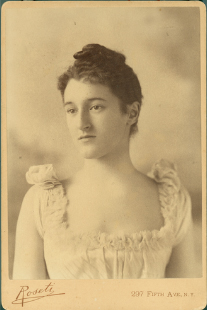
Beatrix Cadwalader Farrand was an American landscape gardener and landscape architect. Her career included commissions to design about 110 gardens for private residences, estates and country homes, public parks, botanic gardens, college campuses, and the White House. Only a few of her major works survive: Dumbarton Oaks in Washington, D.C., the Abby Aldrich Rockefeller Garden on Mount Desert, Maine, the restored Farm House Garden in Bar Harbor, the Peggy Rockefeller Rose Garden at the New York Botanical Garden, and elements of the campuses of Princeton, Yale, and Occidental.

Skylands is a 1,119-acre (4.53 km2) estate property located in Ringwood State Park in Ringwood, New Jersey, a borough in Passaic County in the state of New Jersey. The Skylands property consists of the historic Skylands Manor mansion, and the New Jersey Botanical Garden; the botanical garden is 96 acres (390,000 m2) and it is open to the public year-round. The Skylands property is within the Ramapo Mountains and it is maintained by the Skylands Association. The property is marketed with the garden as New Jersey State Botanical Garden at Skylands.
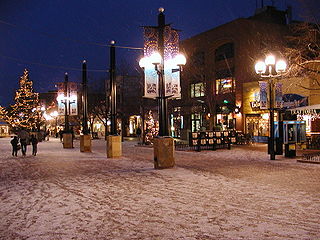
Hideo Sasaki was a Japanese American landscape architect.
Michael Robert Van Valkenburgh is an American landscape architect and educator. He has worked on a wide variety of projects – including public parks, college campuses, sculpture gardens, corporate landscapes, private gardens, and urban master plans – in the U.S., Canada, Europe and Asia. He has taught at Harvard's Graduate School of Design Since 1982 and served as chair of its Landscape Architecture Department from 1991 to 1996.

McKim, Mead & White was an American architectural firm based in New York City. The firm came to define architectural practice, urbanism, and the ideals of the American Renaissance in fin de siècle New York.
Butler Stevens Sturtevant was an American landscape architect.

Villa Virginia is a historic country estate situated on Ice Glen Road in Stockbridge, Massachusetts. Built between 1914 and 1915, it stands as one of the last significant examples of the grand Berkshire Cottages and showcases Renaissance Revival architecture. This estate was added to National Register of Historic Places in 1983.

Walker & Gillette was an architectural firm based in New York City, the partnership of Alexander Stewart Walker (1876–1952) and Leon Narcisse Gillette (1878–1945), active from 1906 through 1945.
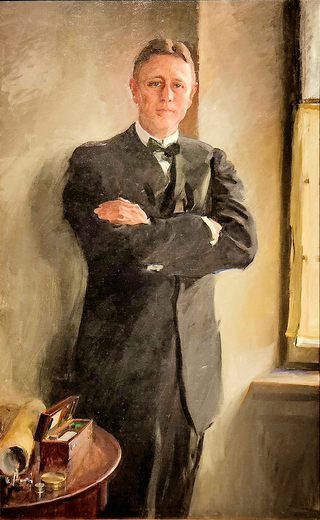
Charles Wellford Leavitt (1871–1928) was an American landscape architect, urban planner, and civil engineer who designed everything from elaborate gardens on Long Island, New York and New Jersey estates to federal parks in Cuba, hotels in Puerto Rico, plans of towns in Florida, New York and elsewhere. New York publisher Julius David Stern called Leavitt "a rare combination of engineer, artist, and diplomat", and the multi-faceted career chosen by Leavitt, veering between public and private commissions and embracing everything from hard-edged engineering to sensuous garden design, and calling for negotiations with everyone from wealthy entrepreneurs to county commissioners, called for an individual with singular talents. Leavitt was one of the preeminent landscape architects of his era and helped found the study of landscape architecture at New York City's Columbia University, where he was one of the first three professors in the university's new four-year program in the discipline.
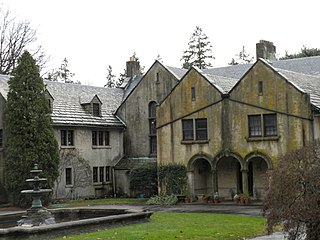
The Allgates is a historic estate which is located in Haverford, Delaware County, Pennsylvania. It was built for financier Horatio Gates Lloyd and his wife Mary Helen Wingate Lloyd.

The Charles W. Merrill House is a 6,000-square-foot residence built in 1938 and located in Orinda, California. Designed by regionally prominent architect Walter H. Ratcliff, of Berkeley, California for mining engineer and San Francisco businessman Charles Washington Merrill.
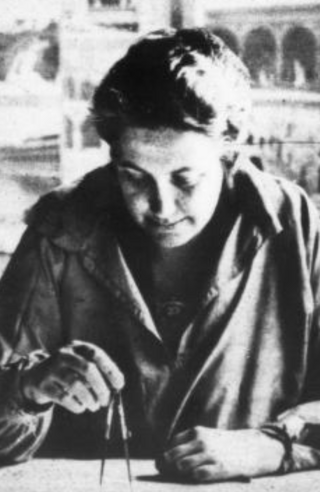
Rose Ishbel Greely was an American landscape architect and the first female licensed architect in Washington, D.C.

Norman Thomas Newton was an American landscape architect and winner of the Prix de Rome.

Richardson Brognard Okie Jr. (1875–1945) was an American architect. He is noted for his Colonial-Revival houses and his sensitive restorations of historic buildings.
James Leal Greenleaf was an American landscape architect and civil engineer. Early in his career, he was a well-known landscape architect who designed the gardens and grounds of many large estates in Connecticut, New Jersey, and New York. He was appointed to the United States Commission of Fine Arts in 1918, and served until 1927. He was the landscape architect for the Lincoln Memorial, and a consulting landscape architect for the Arlington Memorial Bridge.

George Herman Otten was a landscape architect who worked primarily in the U.S. state of Oregon. Born and raised in Oregon, he served in World War I before later working for the Oregon State Highway Department where he worked on projects such as the design of the Oregon State Capitol's mall.
Mary Helen Wingate Lloyd (1868–1934) was an American horticulturist who was a founding member of the American Iris Society and creator of a celebrated "iris bowl" garden.
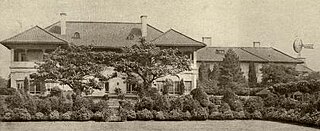
Red Maples was an early 20th-century eatate on fifteen acres in the Village of Southampton, Suffolk County, New York, named after the thirty or so maple trees that once lined its entrance court. The architects Hiss and Weekes designed the house, terraces and several ancillary buildings, and the landscape architect Ferruccio Vitale designed the gardens. Completed in 1913, the house was demolished in 1947 and the estate subdivided over time into eight parcels. A gate house, and a carriage house have survived.
Annette Hoyt Flanders was an American landscape architect. Her work on residential gardens was primarily in the Eastern and Midwestern United States. She was recognized in House & Garden's Hall of Fame in 1930 and elected a Fellow of the American Society of Landscape Architects in 1942.